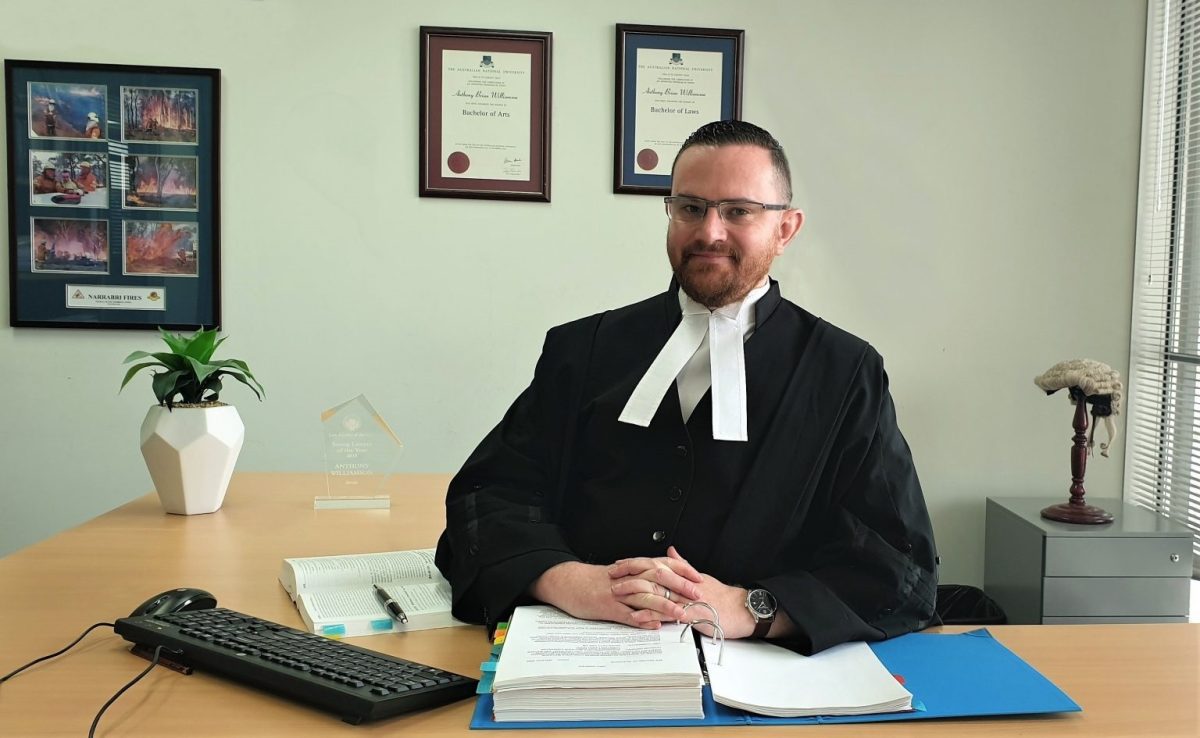
Anthony Williamson had been the ACT’s Acting Director of Public Prosecutions at the time of the meeting. Photo: ACT Office of the Director of Public Prosecutions.
Following a meeting about the discontinuation rate of sexual assault cases, the ACT’s then-top prosecutor wrote to the Attorney-General to explain the issues with using medical evidence and admissions during prosecutions.
In response to a freedom of information request, the Justice and Community Safety (JACS) Directorate has released emails relating to a meeting between Attorney-General Shane Rattenbury and then-Acting Director of Public Prosecutions Anthony Williamson SC about the discontinuation rate of sexual assault cases.
Mr Rattenbury already confirmed they met on 30 January 2024 to discuss concerns raised with him about the discontinuation rate, but insisted it was a policy-level discussion and he wasn’t trying to interfere with the office’s independence.
He also agreed to release his notes from the meeting.
In these notes, released in April, his team wrote that Mr Williamson had explained how sometimes there were “very poor cases” which could include complainants “misrepresenting issues”.
His team wrote that the Acting DPP noted the ACT’s discontinuance rate was similar to other jurisdictions and that the statistics will be published on the rate.
The FOI request then resulted in the release of an email Mr Williamson sent to Mr Rattenbury hours after their meeting. He said he understood it had been suggested that his office had discontinued matters when there was medical evidence of a sexual assault and an accused made admissions.
However, he said, “Medical evidence is usually entirely equivocal in sexual offence prosecutions”.
This was because it usually could only assist prosecutors to prove whether there had been sexual intercourse, while the real issues in dispute in most sex offence trials were whether it was not consented to and whether the accused was aware of the lack of consent.
“Medical evidence rarely does anything to advance the prosecution case with respect to those elements,” Mr Williamson said.
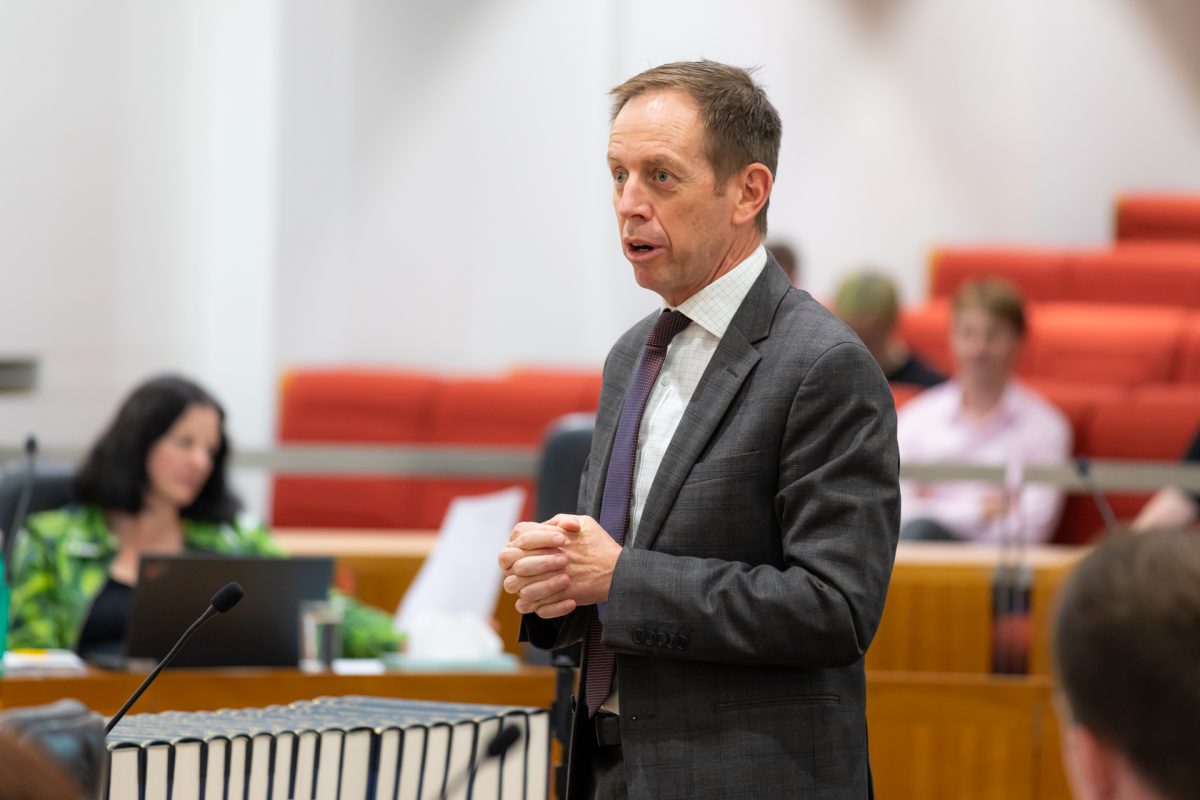
Attorney-General Shane Rattenbury had previously agreed to release the notes from the meeting. Photo: Michelle Kroll.
Also, he said when prosecutors and police used the term “admission”, they used it in a technical and legal sense, being any statement against interest.
“An admission, in the sense that we use the term, does NOT mean a confession to the alleged offending,” Mr Williamson said.
“If an accused were to admit in a police interview that he had intercourse, but was to otherwise claim it was consensual, we would nonetheless say that he has made an admission. Indeed, in the majority of sexual offence matters, the accused will have made an admission to engaging in intercourse.
“I cannot think of any matters which have been discontinued where an accused made a full confession to the alleged offending.”
Mr Williamson said his approach to prosecuting sexual offences was consistent with that of the former DPP, Shane Drumgold SC. He noted that when he was chief crown prosecutor, it was up to him to decide whether matters would be discontinued.
“There was only ever one occasion in which Mr Drumgold disagreed with one of my recommendations,” he said.
“Moreover, in relation to that matter, Mr Drumgold expressed the view that the question as to whether to discontinue the matter was finely balanced and one over which reasonable minds might disagree.
“Whilst acting director, I have rejected a number of requests from prosecutors to discontinue sex matters and directed that the matter proceed to trial.”
When approached for comment about the email, Mr Rattenbury said, “Mr Williamson provided details of processes and a range of advice that addressed the issues that had been raised”.
Mr Williamson acted as DPP after the resignation of his predecessor, Mr Drumgold, until Victoria Engel SC took over the role earlier this year.












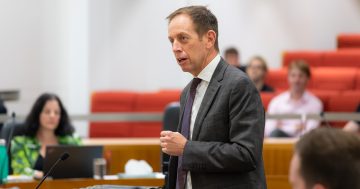
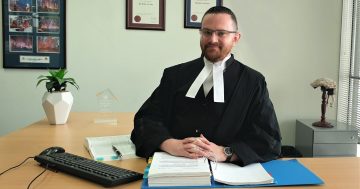

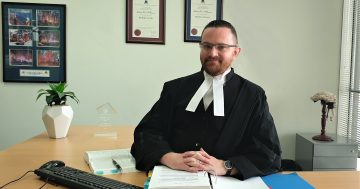


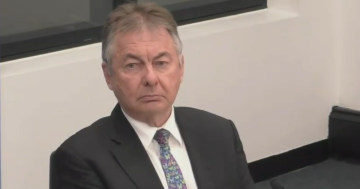

Well done Hands Across Canberra (HAC). You did really well again this year. View